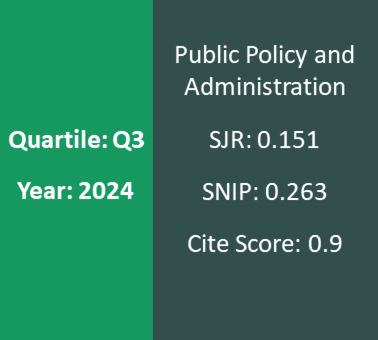Motivational Incentives of Civil Servants in Lithuanian Municipalities
DOI:
https://doi.org/10.5755/j01.ppaa.17.3.21952Abstract
Effective public management cannot be imagined without an efficiently functioning civil service apparatus. It is often stated that people working in the civil service are driven by idealistic motives, however, to ensure the implementation of the state's objectives, the efficiency and quality of civil servant activities, adequate motivational incentives of civil servants are necessary.
The article analyzes theoretical and analytical aspects of the motivational incentives of civil servants: the concept of incentives for civil servants, their value and typology, empirical level of investigation and the experience in the motivation of civil servants at the level of the local government. Theoretical and analytical analysis revealed that the motivation system for civil servants must be balanced, based on the combination of monetary, moral, political, normative and emotional stimuli as well as responding to the motives of civil servants and increasing their job satisfaction. The results of the research showed that the civil servants in Lithuanian municipalities are mostly motivated by moral and normative, and less often by political and monetary incentives. Institutions mostly focus on the willingness of civil servants to contribute to the creation of a society's well-being, to carry out their duty to the public and to serve as well as loyalty and commitment to the institution and promotion of personal development. The study highlighted the importance of the management and direct management in motivating civil servants.





